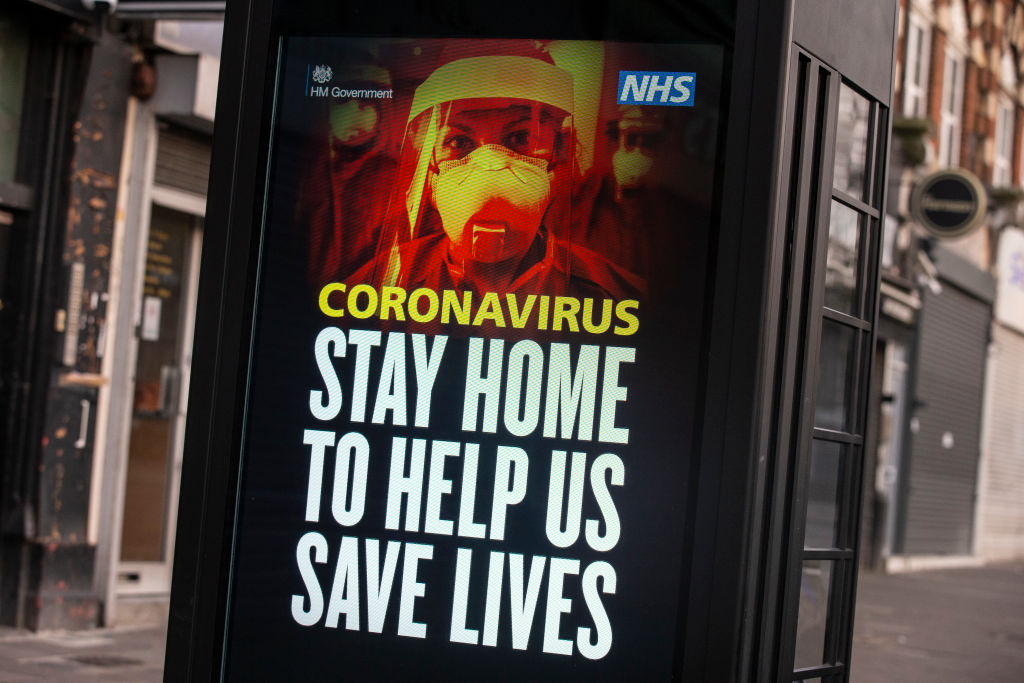Covid-19 is a public health crisis. At least, this is what the doctors, epidemiologists and clinicians who command the air waves are telling us. They’re right, of course. But it isn’t only that: it’s an economic and social crisis too – and yet social scientists have hardly been heard from. They don’t seem to be influencing policy that much either. When the UK government says its decisions are guided by the science, they appear to be referring only to the science of transmission of the virus and its direct consequences for health. And even health is narrowly defined here: as mortality risks in the next few months. The only graphs that typically appear at news conferences are those relating to the number of infections and deaths. As we enter the third week of a lockdown in the UK, the focus of addressing the death toll means suppression remains the only argument in town.
But even if the current lockdown prevents more direct deaths from Covid-19, and even if it will prevent more indirect deaths from health care systems being overwhelmed, can we suppose that the costs of economic and social meltdown (never mind the health losses from other causes) are worth it?
We know that people care about all these things and are willing to make various trade-offs between them in their daily lives. And it is simply not true that individuals care only about health and mortality risks. In the current lockdown, many people would willingly put their own health at risk to be able to see their grandchildren, or attend the funerals of loved ones. As citizens too, we want resources allocated to reduce mortality risks, but we also care about mental health problems, addiction, domestic abuse, and child abuse, all of which are showing early signs of increasing after only two weeks of lockdown. We also care about the effects on job losses, educational outcomes and widening inequalities in income, life expectancy, health and wellbeing. There comes a point at which the economic and social costs of lockdown become too high a price to pay for the reduction on mortality risks from Covid-19.
Public health professionals and infectious disease modellers cannot be expected to provide anything other than a very partial perspective on these issues. This is why it is vital that the policies enacted by governments are informed by a range of perspectives, that take in not only human health, but also wealth, relationships and wellbeing. At this time of crisis, a genuine diversity of perspective and opinion is much needed if we are to mitigate the full and long-term effects of Covid-19 and the various policy responses, such as keeping schools closed and draconian physical distancing measures. There is compelling evidence that diversity of thought and knowledge results in better performance. In the current crisis, I am especially concerned that those with real knowledge and experience of what life will really be like for many of those forced to stay at home in dysfunctional households for weeks on end are not being listened to.
As the lockdown continues, the UK government needs to look beyond the health profession to decide on its exit strategy. It must urgently consult different areas of expertise (such as health economists and clinical psychologists) in a way that more fully considers the health, economic and social costs and benefits of different actions. It is encouraging that leading behavioural scientists are already thinking about how their discipline can be reconfigured to make a more effective and rapid response to the Covid-19 crisis. There is urgent need for different voices and sources of expertise, and for governments to consult more widely.
Such broader consultation might mean that the lockdown is lifted sooner, as the costs from suppression policies for health and wellbeing (of predominantly younger and poorer people) are weighted more heavily against mortality risks. When we look back on these next few weeks in the coming months and years, we will surely, and quite rightly, judge the policy responses according to their impact on all of society, and especially the worst off.
So now is the time to start properly accounting for the effects of lockdown and various exit strategies on all vulnerable members of society and not just those vulnerable to Covid-19. In the very least, a wider range of perspectives beyond public health will make it easier for the government to persuade those who are sceptical of their policies that we really are all in this together. Herd immunity might still not be the best approach, but herd beliefs and behaviours led by one narrow frame of reference may well turn out to be much more harmful for human life once Covid-19 has been dealt with.
Paul Dolan is Professor of Behavioural Science at the London School of Economics and author of the Sunday Times best-selling book ‘Happiness by Design’, and ‘Happy Ever After’






Comments